Localities anticipate criteria framework to attract FDI
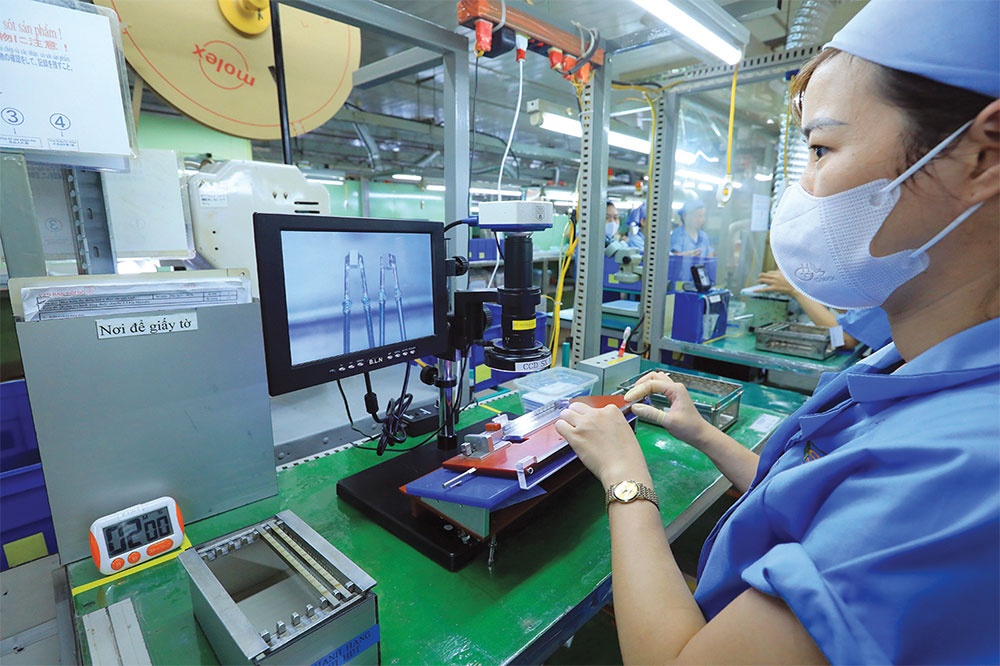 |
| Local authorities wish for an easier process when it comes to dealing with new projects of various sizes, photo Le Toan |
The Institute for International Investment Studies (ISC) is implementing a survey with cities and provinces across the country about the impact of Resolution No.50-NQ/TW on improving the quality and efficiency of foreign investment cooperation towards 2030.
As part of its work, in which surveys will be carried out every five years, the ISC is also working with localities to collect opinions to help build the specific criteria framework for attracting high-quality foreign-invested projects. The Central Party Committee has assigned the Central Economic Committee to make a report, with the latter ordering the ISC to conduct the surveys and build the criteria framework.
Over the past few weeks, the ISC has worked directly with departments of Nghe An, Ha Tinh, Vinh Phuc, and Hai Duong provinces, among others. In addition, they will implement online surveys with the rest of the localities to collect opinions.
ISC member Ngo Cong Thanh said that Resolution 50, which was issued in 2019, provided some important tasks, including formulating investment criteria for selecting areas given priority in conformity with local development orientations.
“In addition, it needs to establish criteria for assessing the efficiency of foreign funding in terms of economic, social, environmental, national defence and security aspects,” Thanh said. “Furthermore, it needs to improve regulations on management and supervision of foreign investments, providing for the responsibility of ministries and local governments to take charge and cooperate in management and supervision of such activities.”
However, four years after Resolution 50 came into being, specific criteria in this vein is unfinished. Meanwhile, although criteria to appraise foreign-invested projects was integrated into the laws on investment and the environment, application still has many limitations, Thanh explained.
“Meanwhile, through meeting with localities, especially emerging localities, it is found that they are waiting for the official criteria frameworks with specific guidelines so that they can attract large-scale projects with high-tech content,” Thanh said.
Hai Duong is just one example. The province reported a breakthrough in foreign-invested capital this year, and wants to continue to sharpen its focus on calling for large-scale non-labour-intensive ventures with advanced technologies and high-value products.
Nguyen Duy Hung, deputy director of Hai Duong Department of Planning and Investment, said, “Compared to the surrounding localities such as Quang Ninh, Haiphong, or Bac Ninh, our province is an emerging locality in attracting foreign capital. Thus, having specific criteria will help the province turn down labour-intensive projects and schemes that have a higher risk of environmental pollution, such as garments and textiles. In addition, the criteria will support us in appraising various initiatives.”
“During the investment promotion process, many foreign financiers express their intentions to put less than $5 million into projects. We are often perplexed about deciding to turn these types of ventures down due to a lack of criteria. We are then forced to report to provincial leaders for advice, and this lack of criteria means we are not proactive enough in filtering out unwarranted proposals,” Hung added.
The team at ISC also said that in the cities and provinces where they worked, the leaders of provinces and departments had the same opinion about the importance of issuing the specific criteria framework soon.
At both international and domestic forums, Vietnam’s leaders have emphasised that there should be innovative measures to attract investment from society, with a particular focus on selectively choosing foreign funding in large-scale and high-tech projects, especially in sectors like manufacturing and processing, electronics, semiconductors, and hydrogen.
Vietnam aims to attract half of the Fortune-listed 500 global largest corporations by 2030 and to be among ASEAN’s top three and the world’s top 60 countries in the World Bank’s Ease of Doing Business rankings.
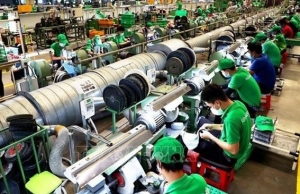 | FDI flows into Vietnam go up 14.8 per cent in 11 months Nearly 28.85 billion USD in foreign direct investment (FDI) was registered as of November 20, rising 14.8 per cent year on year, reported the Foreign Investment Agency (FIA) under the Ministry of Planning and Investment. |
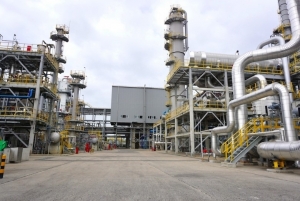 | FDI to Ba Ria-Vung Tau on steady rise Amid multiple challenges in both global and domestic economies, in the first 10 months of this year Ba Ria-Vung Tau has enticed 20 foreign-led projects valued more than $751 million in total registered capital, a 2.78-fold increase on-year. |
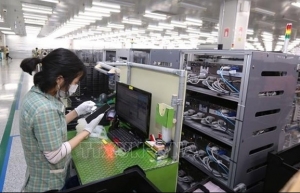 | Vietnam to develop initiatives to sustain FDI flows Vietnam will set up a support fund to encourage and lure strategic investors and multi-national groups, making it more attractive in attracting foreign direct investment, as the National Assembly recently approved a resolution on applying additional corporate income tax in accordance with the Global Anti-Base Erosion Rules (global minimum tax). |
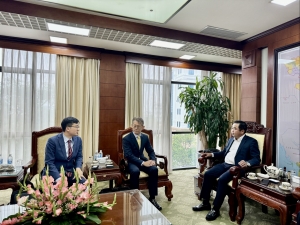 | Hai Duong lights the way to facilitate investors from afar The northern province of Hai Duong currently has thousands of hectares of clean available land for foreign-invested enterprises, which Japanese groups in particular are interested in. |
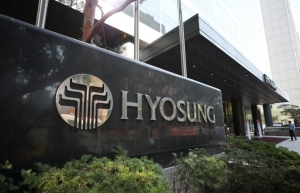 | Hyosung Group unveils $720 million investment in Vietnam Hyosung Group, a South Korean industrial conglomerate, has announced plans to invest $720 million in a biotech fiber manufacturing plant in Vietnam. |
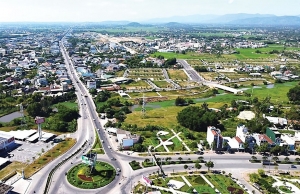 | The outlook of Quang Ngai urban area Quang Ngai province’s planning for the next decade and beyond has been approved by the government to help it maximise its potential and create a breakthrough in economic and social development. |
What the stars mean:
★ Poor ★ ★ Promising ★★★ Good ★★★★ Very good ★★★★★ Exceptional
Related Contents
Latest News
More News
- Hermes joins Long Thanh cargo terminal development (February 04, 2026 | 15:59)
- SCG enhances production and distribution in Vietnam (February 04, 2026 | 08:00)
- UNIVACCO strengthens Asia expansion with Vietnam facility (February 03, 2026 | 08:00)
- Cai Mep Ha Port project wins approval with $1.95bn investment (February 02, 2026 | 16:17)
- Repositioning Vietnam in Asia’s manufacturing race (February 02, 2026 | 16:00)
- Manufacturing growth remains solid in early 2026 (February 02, 2026 | 15:28)
- Navigating venture capital trends across the continent (February 02, 2026 | 14:00)
- Motivations to achieve high growth (February 02, 2026 | 11:00)
- Capacity and regulations among British areas of expertise in IFCs (February 02, 2026 | 09:09)
- Transition underway in German investment across Vietnam (February 02, 2026 | 08:00)

 Tag:
Tag:




















 Mobile Version
Mobile Version